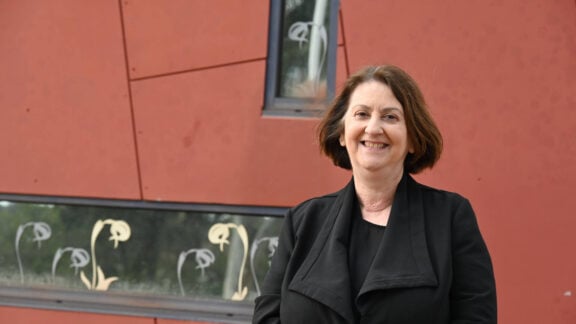The 19th of May is a public holiday in Turkey, for it is Commemoration of Atatürk, Youth and Sports Day. This day, made a public holiday by Kemal Atatürk and dedicated to the youth, commemorates his landing in Samsounta on 19 May 1919, which, in official Turkish historiography, marks the commencement of what is referred to as the Turkish War of Independence.
Greeks also commemorate the 19th of May for an entirely different reason. The day of the landing of Atatürk in Samsounta, there to rebel against the Ottoman government and establish nationalist Turkey, has been appointed as the day upon which to commemorate the genocide of the Greek peoples of Pontus. The date is, of course, symbolic.
The genocide of the Pontic Greeks commenced years before by the Ottomans. Though it would continue under the Kemalists, at whose hands the final extirpation of the Pontic Greeks from their homelands took place, the genocide itself did not commence on that particular day. Thus, when Turks celebrate youth, their national regeneration, and vanquishing of the Greek army, which they see as an invading force, Greeks simultaneously remember a protracted mass slaughter of innocent people, solely because of their religion and ethnic affiliation.
One date, can, therefore, have diverse meanings and connotations for those observing its commemoration. January the 26th, Australia Day, is another holiday in which a multiplicity of meanings is encoded.

Originally chosen to mark the anniversary of the 1788 arrival of the First Fleet of British ships at Port Jackson, and the raising of the British flag at Sydney Cove by Arthur Phillip, it commemorates the proclamation of British sovereignty over the eastern seaboard of Australia. It is also one of the oldest public celebrations of white Australia, with records of celebrations on 26 January dating back to 1808, and with the first official celebration of the formation of New South Wales held on that date in 1818.
In recent years, Australia Day focuses on celebrating the diverse society and landscape of the nation, with official community awards and citizenship ceremonies welcoming new members of the Australian community taking place on the day. The annual Lamb Day commercials, which portray all peoples converging upon an Australian beach to enjoy a lamb barbeque, commencing with Aboriginal and Torres Strait Islanders passively accepting the arrival of others upon their shores. The tacit message is that, notwithstanding history, this country is home to all who reside in it; more things unite us than divide us (a trivial appreciation of lamb, for instance); and thus, it is important for us to get along in an easygoing, hospitable way, which is touted as being truly “Australian.”
Such an inclusive approach, celebrating multiculturalism and social cohesion, is a far cry from the 1837 celebration, which whites born in Australia sought to appropriate solely for themselves. In this, they had a sympathetic ear in the Sydney Herald: “parties who associated themselves under the title of ‘United Australians’ have been censured for adopting a principle of exclusiveness. It is not fair so to censure them. If they invited emigrants to join them they would give offence to another class of persons – while if they invited all they would be subject to the presence of persons with whom they might not wish to associate. That was a good reason.”
These days, 26 January is seen as an ideal day to celebrate unity within the part-mosaic, part-melting pot, that comprises the modern Australian community. In this way, it elides cleverly over the fact that the original significance of the date means nothing to the majority of non-Anglo-Saxon migrants to this country and their descendants, the Greeks among them being more likely to venerate the day Gough Whitlam won the 1972 election than any obscure landing of the British at Port Jackson. Whether we arrived in 1788, or in 1988, all of us have the opportunity to eat lamb.
The omission is logical and innocuous, save that it serves to obfuscate the significance of the 26 January 1788 landings. As a consequence of those landings, the original inhabitants of Australia were, over a long period of time, dispossessed of their lands, and subjected to various bouts of physical and cultural persecution – culminating in the genocide of the Tasmanian Aboriginal peoples, deprived of the right to govern themselves, deprived of their children in many instances, subjected to social discrimination and marginalisation and, until the 1967 Referendum, not included in the national Census or included in federal government legislation. Viewed from this perspective, to celebrate Australia Day on 26 January could therefore be argued to tacitly recognise and legitimise the violent seizure of Australia from the Aboriginal and Torres Strait Islanders by the British, to accept an Anglo-Saxon construction of history and the ruling class’s aboragation of the right to determine who and in which circumstance such people will arrive and reside here, without reference to the rightful custodians of the land. Here in Australia, descendants of victims of the Pontian genocide are uniquely placed to appreciate the hurt that insensitivity to the psychological and social effects of catastrophes of this nature, can cause.
The campaign to relocate Australia Day to another date in protest at the ordeal of the original caretakers of this land, is, not a new one. As far back as 1888, the centenary of British colonisation, Aboriginal and Torres Strait Islander leaders boycotted Australia Day celebrations. Petitions to the Australian and British governments in the early 1930s, for the recognition of Aboriginal and Torres Strait Islander civil rights were ignored or dismissed, As a result, on Australia Day 1938, a Day of Mourning was proclaimed via a protest march in Sydney. At the same time, because local Aboriginal people refused to participate in an official re-enactment of the First Fleet’s arrival, the NSW Government removed a group of Aboriginal men from a reserve and brought them to Sydney, kept them overnight in police barracks stables in Redfern, and on Australia Day forced them to run up the beach at Farm Cove to convey the impression that they were fleeing in fear from the British. Since that terrible day, which can be likened to Turkish celebrations of the past where the bones of slaughtered Greeks were paraded around certain areas, Aboriginals have continuously opposed 26 January as an appropriate day to celebrate Australia Day, just as Pontians are incensed at insensitivity of Turkey’s celebration of a date that was the catalyst for the completion of the genocide of their people.
The debate over the relevance on 26 January is thus symptomatic of a community that while on the one hand admits, via legislation, the wrongs done to Aboriginal and Torres Strait Islander peoples, socially struggles to come to terms with those and enshrine them in their proper place within the national discourse. Thus, while the meanings and connotations of a particular holiday should, if they are to remain relevant, evolve over time, and in the case of Australia Day have admirably evolved to embrace almost all of its inhabitants, such evolution comes at the expense of reckoning the harrowing effect of Anglo-Saxon rule upon Aboriginal and Torres Strait Islander communities.
In the light of that experience, whether or not 26 January is deemed to still be an appropriate date upon which to celebrate Australia, is ultimately an issue that must be resolved through community debate. Regardless, proper consideration of the negative experience of Aboriginal and Torres Strait Islander communities post-1788 must be awarded pride of place in any celebration of Australia and the Greek community: people whose ancestors also knew racial and religious persecution are perfectly positioned to play a leading role in facilitating such a discourse. Once Australia Day is able to encompass and pay homage to the sum total of our collective experiences, both good and bad, we will have something truly worth celebrating.








